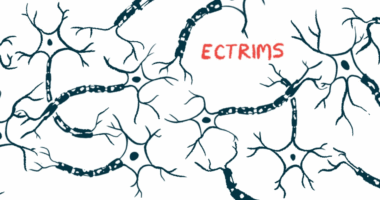MS Relapses During Natalizumab Therapy Traced to Drug’s Greater Impact on Regulatory T-cells

Natalizumab (Tysabri) harnesses multiple sclerosis (MS) activity by targeting CD49, a molecule on the surface of immune cells. Now, researchers found that the drug reduces the factor on regulatory T-cells to a greater extent than on inflammatory T-cells — a mechanism that might explain disease exacerbation during treatment.
The molecule under investigation in the study, CD49, is the main factor governing migration of immune cells to the central nervous system. By blocking its actions, natalizumab is highly effective in inducing MS remission. Some patients, however, experience relapses and disease progression while under treatment.
Natalizumab treatment does not necessarily block all CD49; earlier studies have shown that the antibody is able to bind between 60 percent and 100 percent of all available molecules. Scientists also do not understand how effective natalizumab treatment is in reducing CD49 on different types of immune T-cells.
Researchers at the National Center of Neurology and Psychiatry in Tokyo, Japan, therefore, measured the molecule on inflammatory and regulatory T-cells, to explore if potential differences could explain why the treatment is not optimally suppressing disease activity in some patients.
The study, “Disrupted balance of T cells under natalizumab treatment in multiple sclerosis,” analyzed the expression of CD49 in 27 patients who had never received the drug, eight natalizumab-treated MS patients, and eight healthy controls. Also, seven patients with neuromyelitis optica (NMO) or NMO spectrum disorder, a condition where the optic nerve is affected by inflammation and demyelination, were included.
Results, published in the journal Neuroimmunology and Neuroinflammation, showed that natalizumab treatment reduced CD49 on regulatory T-cells — so called Tregs — more than on inflammatory T-cells. During the study, two patients suffered a disease exacerbation, and the team observed that the number of inflammatory cells still expressing CD49 was remarkably high compared to the number of CD49-expressing Tregs.
Researchers also noted that the remaining CD49-positive cells expressed more pro-inflammatory, and less regulatory, factors, suggesting that the pool of CD49-immune cells not eliminated during natalizumab treatment might contribute to disease exacerbations.
Study results further imply that the ratio of CD49 on inflammatory to regulatory cells could be used as biomarkers to improve monitoring of patients on natalizumab treatment.






